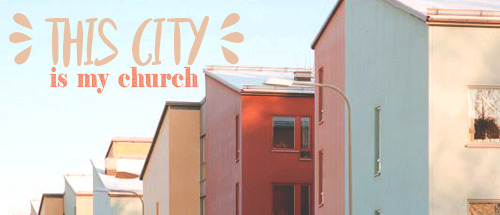Don't wanna be here? Send us removal request.
Note
What's the difference between 아니요 and 아니야?
-(이)야 is the casual/impolite way to say “이에요/예요” with nouns.
Therefore, 아니야 is the informal way of saying, “It’s not", “I’m not”, “she’s not”, “They’re not” etc.. 아니에요 is the polite form.
아니요 is essentially just a polite way of saying, 아니 (No) in Korean.
54 notes
·
View notes
Text
the problem with learning to speak languages is you have to actually… speak to people for conversation practice
8 notes
·
View notes
Text
COVID-19 어휘
사회적 거리두기 – social distancing 마스크 착용 – wearing a mask 마스크 미착용 – not wearing a mask (손) 소독제 – hand sanitizer 확진자 – confirmed patient (someone who’s tested positive) 검사 – test 음성 – negative 양성 – positive 격리 – quarantine 재택근무 – working from home 밀접 접촉 – close contact 비접촉식 체온계 – contactless thermometer
223 notes
·
View notes
Text
“To say there is no worth in learning a language that isn’t economically useful is like saying there’s no point in being friends with somebody unless they’re going to help you get a better job. It’s a spectacular, cynical miss of the point.”
— Rhona NicDhùghaill (via tealingual)
15K notes
·
View notes
Text
o castelo no monte
1 note
·
View note
Text
Idiomatic Expression - no tener vela en este entierro
Literally, “to not have a candle in this burial/funeral”
Idiomatically, this expression means something like “to have nothing to do with it” or “to not be involved” or “to be unaffected”. It’s often used as an expression of neutrality or objectivity.
In English we sometimes say “I have no horse in this race”… it just means that you aren’t personally affected by something as much as someone else, or that you have no part in it.
The expression comes from a tradition in funerals for family members or very close friends to have or light candles during the service or at a vigil, and the ones with the candles would be the people most impacted by someone’s death.
EDIT: You also sometimes see something like ¿Quién te ha dado vela en este entierro? to shut someone up, sort of like “Who asked you?” or “What’s it got to do with you?” sort of as a way to tell someone to mind their business
96 notes
·
View notes
Text
Basic Spanish Business Vocabulary
Here’s a list of some useful business vocabulary you can be sure to use. This could potentially go on and on but this will get you started. Happy learning!
Nouns/adjs of Business
el mercadeo - trade/business/buying and selling
la mercancía - merchandise/goods
el mercado - market
el mercadillo - street market
mercantil/comercial(adjective) - commercial
mayorista/al por mayor - wholesale
el comercio - shop/business
la remesa -shipment/remittance (money)
el envío - delivery/shipment
el presupuesto - budget
el código de barra - barcode
el análisis - analysis
el negocio - business/shop/deal
la empresa - businesss/company/enterprise
la compañía - company
la franquicia - franchise/chain
la gerencia - management
la venta - the sale
la compraventa - trade/buying and selling
el contrato - contract
la ganancia - earnings/profit
el stock - stock
la fecha de entrega/fecha límite - deadline
la factura - invoice/receipt
el gasto - expense/expenditure
el reembolso - refund
la devolución - reimbursement
las cuentas a/por pagar - accounts payable
las cuentas a/por cobrar - accounts receivable
la deuda - debt
el préstamo - loan
el depósito/la bodega/el almacén - warehouse
People of Business
el/la comerciante/negociante - businessman/businesswoman
el mercante - merchant
la clientela - clientele/customers
el cliente - client
el distribuidor - distributor
el productor/fabricante - manufacturer
la junta directiva - the board (of directors)
el empresario - entrepreneur/business
el jefe/la jefa - boss
el presidente/la presidenta - president
el director ejecutivo - CEO
el administrador - administrator
el proveedor - the supplier
Verbs/Phrases of Business
negociar - to negotiate/deal in/do business
comerciar - to deal/trade
invertir - to invest
gastar - to spend
distribuir - to distribute
producir - to produce/manufacture
almacenar - to store/keep in warehouse
prestar dinero - to lend money
reembolsar - to refund/reimburse
hacer un pago - to make a payment
dar un seguimiento - to follow up
lo antes posible - ASAP
generar rentabilidad - to turn a profit
inventar el agua azucarada - to reinvent the wheel
empezar de cero - to start from scratch
quedarse dentro del presupuesto -to stay within budget
ponerse en contacto - to reach out
estar en contacto - to be in touch
cortar gastos/reducir costos - to cut costs
107 notes
·
View notes
Text
10 Writing Practice Prompts
I seriously need to get better about doing writing practice in my target langs, so I put together a list of short essay prompts, and I figured I’d post them if anyone else wants to use them too. You can do them in order langblr challenge style or just pick ones that sound interesting.
Rules: write a short essay around each prompt, let’s say minimum 3 paragraphs each. Then make a vocab list of any new words you learned while writing it.
1. Let’s start easy. Write about yourself; who you are, where you live, your school or work, your family, hobbies, pets, likes/dislikes, whatever you want to include.
2. Pick a place where your target language is spoken and write a short report on it. You can include whatever you want, but some examples of things you could write about include the geography, population, tourist attractions, local culture and food.
3. Pick an animal that you like and write a short report on it. Bonus points if it’s an animal that lives in the area where your target language is spoken or is significant to the culture in some way, but it can be whatever animal interests you. Include what it is, what it looks like, where it lives, what it eats and anything else distinctive about it.
4. Write about a food from the culture of your target language. What is it? How is it made? Is it eaten at certain times? Have you tried it, and if not, would you like to? If you have tried it, do you like it? Bonus points if you include a recipe.
5. Pick a hobby of yours and write about it. It can be knitting, jogging, video games, whatever you want. What is it? When and how did you get into it? Why do you like it?
6. Research a significant person in the culture/history of your target language and write a short report on them. It can be an aritst, a political figure, or anyone else you find interesting. Who are they? What are they known for? Give a brief bio. If you want, share your opinions on them.
7. Pick a piece of media, like a book, movie or show, and write about it. Bonus points if it’s from the culture of your target language, but it can be anything. Give a brief description and talk about plot, characters, and whether you liked it or not.
8. Pick a historical event in the culture of your target language and write a short report on it. Summarize what happened and why it was important.
9. Pick a current event in the culture of your target language, whether it’s a news article or a political/social issue. Describe the event and what impact it has.
10. Compare your target language to your native language. What’s similar and what’s different? What are the things that were hardest for you to learn? What do you still need to work on?
81 notes
·
View notes
Text
.vocab list 02.

français // english // brazilian portuguese
La Ville // The City, The Town // A Cidade, O Município
la voie (f. pluriel) // the way, the route // o caminho (m.), a via (f.), a estrada (f.)
l’avenue (f.) // the avenue // a avenida (f.)
le boulevard (m.) // the boulevard // o bulevar (m.)
le carrefour (m.) // the crossing, the crossroad // o cruzamento (m.), a encruzilhada (f.)
le fleuve (m.) // the river // o rio (m.) *
la place (f.) // (1) the place, the venue, the spot; (2) the public square // (1) o local (m.), o lugar (m.); (2) a praça (f.)
le pont (m.) // the pont // a ponte (f.)
le quai (m.) // the quay, the pier, the dock // o cais (m.)
la rivière (f.) // the river // o rio (m.) *
la rue (f.) // the street // a rua (f.)
les lieux (m. pluriel) // the places, the spots, the locations (plural) // os lugares (m. plural), os locais (m. plural)
la banque (f.) // the bank // o banco (m.)
la bibliothèque (f.) // the library // a biblioteca (f.)
la cathédrale (f.) // the cathedral // a catedral (f.)
l’église (f.) // the church, the [religious] temple, the place of worship // a igreja (f.), o templo (m.), a casa de oração (f.)
le centre-ville (m.) // the city-center, the downtown // o centro [da cidade] (m.)
l’école (f.) // the school // a escola (f.)
la gare (f.) // the station, the train station, the subway station // a estação (f.)
le jardin [public] (m.) // the [public] garden // o jardim [público] (m.)
la mairie (f.) // the city hall, the town hall // a prefeitura (f.), a câmara municipal (f.)
le musée (m.) // the museum // o museu (m.)
la police (f.) // the police // a polícia (f.)
la poste (f.) // the post office // o correio (m.)
le quartier (m.) // the nighbourhood, the district // o bairro (m.)
le théâtre (m.) // the theater // o teatro (m.)
la tour (f.) // the tower // a torre (f.)
* The difference between “la rivière” and “le fleuve”; the latter is a body of water that discharges into the ocean or the sea. La rivière, on the other hand, discharges into another rivière, fleuve, in a lake or in the sea.
745 notes
·
View notes
Text
Stores in korean

신발 가게 - shoes store / loja de calçados
옷 가게 - clothing store / loja de roupas
장난감 가게 - toy store / loja de brinquedos
슈퍼마켓 - supermarket / supermercado
채소 가게 - vegetable shop / hortifrúti
과일 가게 - fruit shop / frutaria, hortifrúti
생선 가게 - fish shop / peixaria
제과점 - bakery / padaria
카페 - coffee shop / cafeteria
서점 - bookstore / livraria
문방구 - stationery store / papelaria
미장원 - beauty salon / salão de beleza
미용실 - hair salon / salão de cabeleireiro
세탁소 - laundry / lavanderia
약국 - pharmacy / farmácia
애완동물 가게 - pet shop / pet shop
695 notes
·
View notes
Text
◇ How to improve your knowledge in languages ◇
1 Don’t translate the new words, just use a dictionary, such as you do in your native language.
2 Rewatch movies - because now you can understand the movie, even if you don’t know exactly what are they saying
3 Read Wikipedia™
4 Talk alone
5 Learn your favorite songs and write their lyrics in a paper
6 Read a book or whatever
7 Watch recipes videos to learn food vocabulary
8 Force yourself to consume content even if is boring because you can’t understand what is happening
9 When you’re consuming some content, have an open tab with Google Translator - this makes the movie/book/video more dynamic and less boring
10 Tandem is a free app which allows you to practice your target languages with natives and this is awesome.
5K notes
·
View notes
Text
Topics for vocab lists for beginners
greetings and introduction phrases
family
numbers
days of weeks and months, times of day
countries + languages
pets
common animals
fruit
vegetables
food + drinks
daily routine
rooms
furniture
shops/public buildings
school/work related words
travel related
shopping vocabulary
clothes
jobs
common hobbies + your hobbies
colours
common adjectives
body parts
directions
basic nature vocabulary
kitchen equipment/cooking
toiletries/ make up
1K notes
·
View notes
Text
Weekdays in Romance languages:
Catalan: dilluns, dimarts, dimecres, dijous, divendres
French: lundi, mardi, mercredi, jeudi, vendredi
Italian: lunedì, martedì, mercoledì, giovedì, venerdì
Romanian: luni, marţi, miercuri, joi, vineri
Spanish: lunes, martes, miércoles, jueves, viernes
Portuguese: SEGUNDA-FEIRA, TERÇA-FEIRA, QUARTA-FEIRA, QUINTA-FEIRA, SEXTA-FEIRA
1K notes
·
View notes
Text

my brain convincing me i need to learn yet another language
1K notes
·
View notes
Note
Can you recommend me some good brazilian singers/bands or series/movies? I recently started learning portuguese and I'm trying resoures. Thanks in advance!!
Playlist:
Jão - Imaturo
Jão - Ressaca
Rodrigo Alarcon - O Lado Vazio do Sofá
Newton Brito - Onde anda você
Rodrigo Alarcon part. Liniker - Amor acidente
Criolo - Duas De Cinco
Criolo - Convoque Seu Buda
Criolo - Esquiva Da Esgrima
Supercombo - Amianto
Gabriel o Pensador - Nádegas a Declarar
To Watch:
3% (Netflix series)
Cidade de Deus
Dupla Identidade
Divã
Tropa de Elite
Hoje Eu Quero Voltar Sozinho
Ilha das Flores
198 notes
·
View notes
